CURRENCY
BUSINESS OPPORTUNITIES IN KYRGYZSTAN
Kyrgyzstan
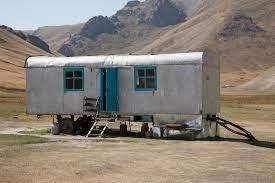
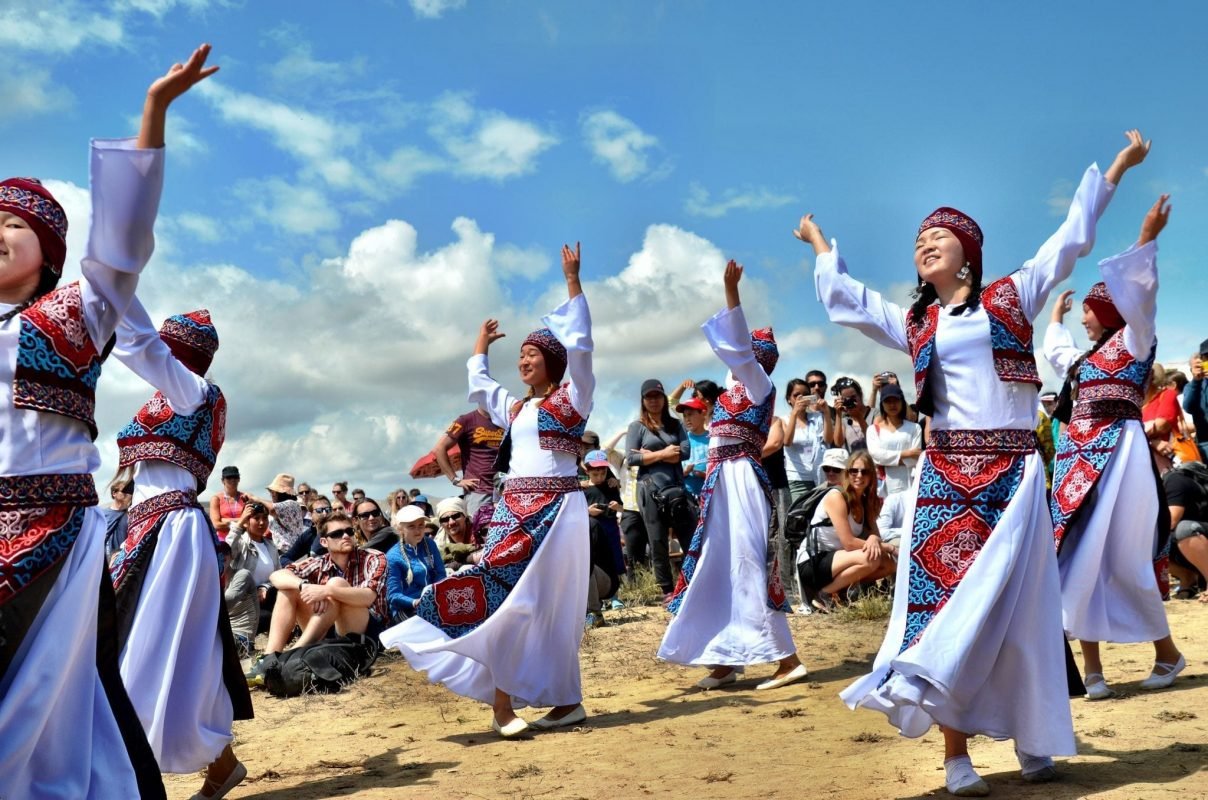
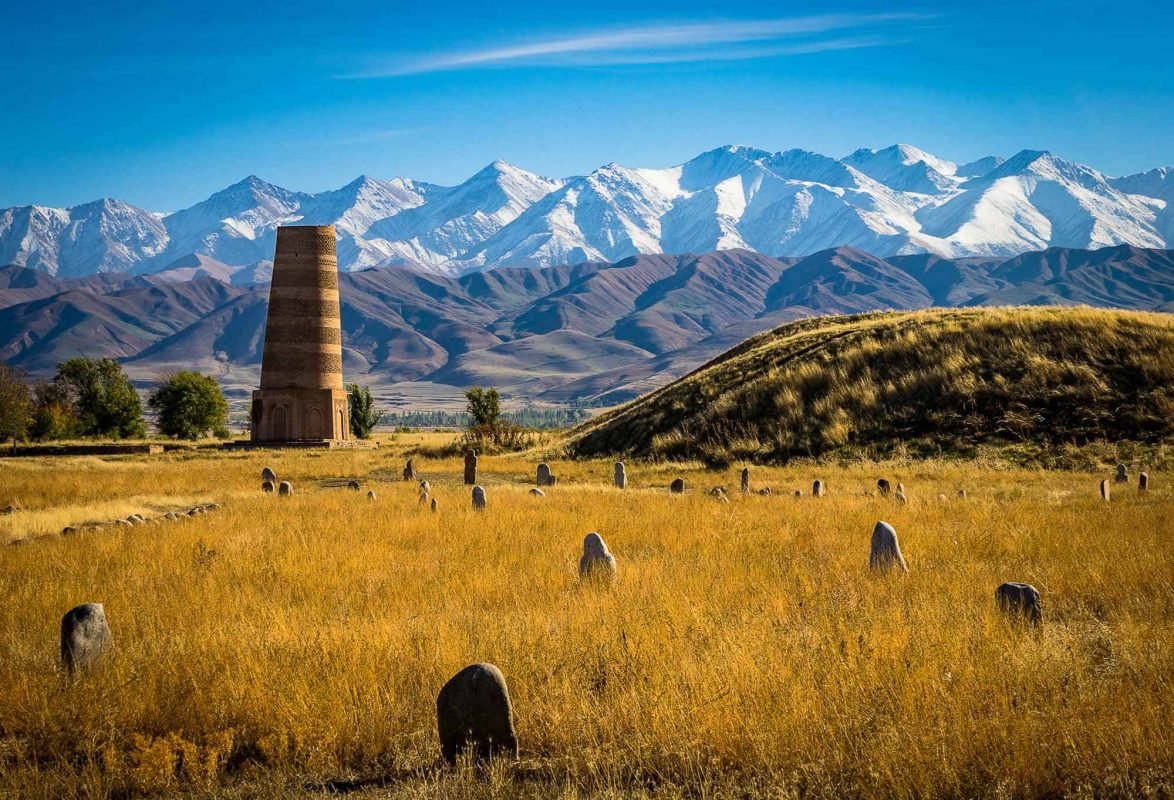
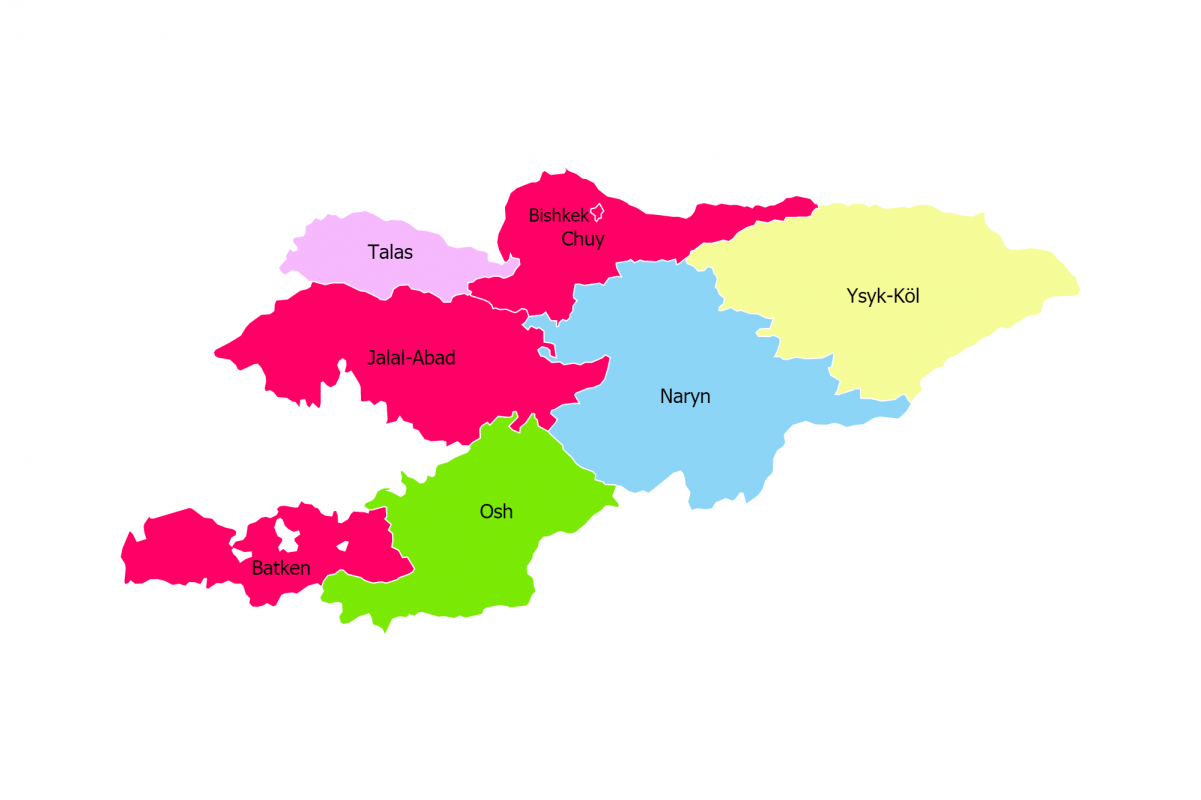
FLAG
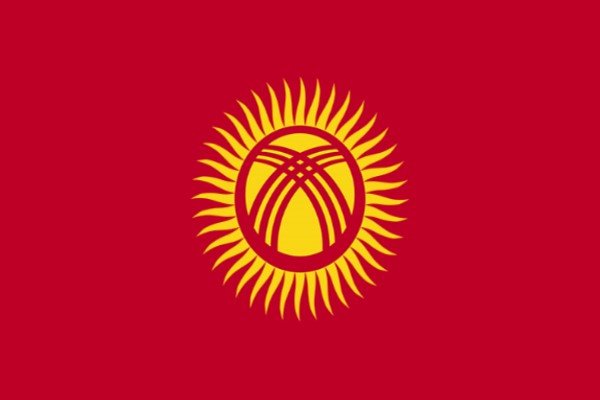
KYRGYZSTAN
CAPITAL CITY
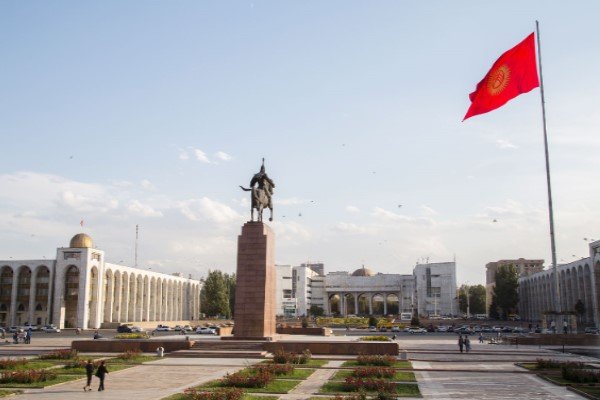
BISHKEK
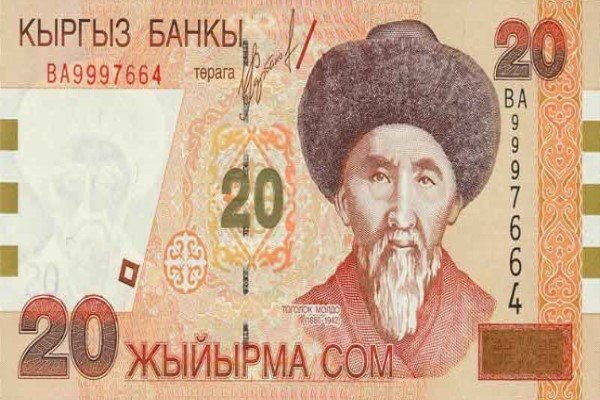
KYRGYZSTANI SOM
Language

Population

66.41 LAKHS
Country
Calling Code

+996
LOCATION:
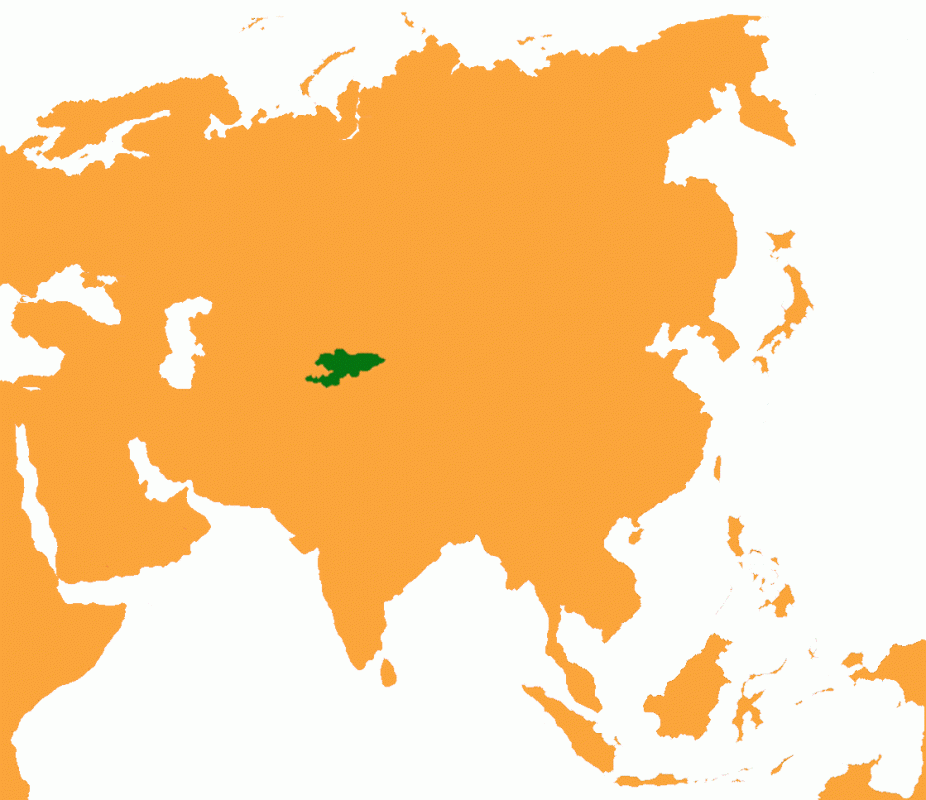
CENTRAL ASIA
BORDER COUNTRIES:
TAJIKISTAN
UZBEKISTAN
CHINA
KAZAKHSTAN
ABOUT KYRGYZSTAN
Amongst all the countries in Central Asia, Kyrgyzstan, officially the Kyrgyz Republic, is a landlocked nation renowned for its breathtaking mountainous landscapes, including the Tian Shan range, and its rich nomadic heritage. After gaining independence from the Soviet Union, Kyrgyzstan embarked on a path towards a market economy and democratic governance, albeit with occasional political transitions. Bishkek is the capital and largest city, serving as the country’s main administrative, economic, and cultural center. According to the World Bank, Kyrgyzstan is classified as a Lower-Middle Income Economy, with its economy heavily reliant on gold mining, remittances, and agriculture.
The currency of Kyrgyzstan is the Kyrgyzstani Som (KGS). As of today’s exchange rates (June 2025), 1 Kyrgyzstani Som is approximately 0.95 Indian Rupees. The population of Kyrgyzstan is estimated at approximately 7.0 million in 2024. Kyrgyzstan is a landlocked country and shares land borders with Kazakhstan to the north, Uzbekistan to the west, Tajikistan to the southwest, and China to the southeast. It has no maritime borders. The official languages are Kyrgyz (state language) and Russian (official language). While Russian is widely understood, especially in urban areas and for business, English proficiency is growing, particularly among younger generations in the capital. Islam is the dominant religion, with a significant Russian Orthodox minority and other smaller religious communities. Major international airports include Manas International Airport (FRU) in Bishkek and Osh International Airport (OSS) in Osh, offering connections to various regional and international destinations. As a landlocked country, Kyrgyzstan relies on its rail and road networks for trade, with dry ports and logistics hubs playing a crucial role.
The standard corporate income tax rate in Kyrgyzstan is generally 10%. Lower tax regimes and exemptions may apply to businesses operating in specific zones or sectors. Kyrgyzstan offers various investment incentives to attract foreign direct investment, primarily through its Law on Investments and provisions for Free Economic Zones (FEZs). These incentives are designed to promote economic development, particularly in priority sectors. They include:
- Tax Exemptions: Companies operating in FEZs (e.g., Bishkek FEZ, Kara-Balta FEZ, Naryn FEZ) can benefit from exemptions from corporate income tax, VAT, customs duties, and property tax for a specified period.
- Reduced Rates: For certain types of activities or in specific regions.
- Simplified Procedures: Streamlined registration and operational procedures within FEZs.
- Protection of Foreign Investment: The Law on Investments guarantees the protection of foreign investment against nationalization and discrimination, and allows for the free repatriation of profits. Opesh Group of companies will be helping you in completing the Due Diligence process which includes financial planning, registration process, business options, and if required, even helping you find a Rental property for your office.
Establishing a business in Kyrgyzstan has become more accessible in recent years due to ongoing government efforts to improve the investment climate. Foreign investors can typically establish a Limited Liability Company (OsOO), a Joint Stock Company, or a Branch Office. Kyrgyzstan’s Law on Investments generally allows for 100% foreign ownership in most sectors, promoting an open approach to foreign investment. While some bureaucratic hurdles may exist, the government is committed to creating a more favorable and transparent business environment.
In case an investor is planning to establish an OsOO (Limited Liability Company) or a corporate business setup in Kyrgyzstan, Opesh Group will be helping you in taking the right decision for setting up your business in Kyrgyzstan and we will also guide you about how to follow the procedure while formulating your company in Kyrgyzstan.
Types of Business which can be started in Kyrgyzstan:
- Mining: Gold mining is the largest industry, with opportunities in exploration, extraction, and processing of gold, coal, and other valuable minerals.
- Agriculture & Agro-processing: Vast potential in organic farming (fruits, vegetables, cotton), livestock, dairy, and processing of agricultural products for domestic consumption and export.
- Hydropower & Renewable Energy: Abundant water resources offer significant opportunities for hydropower generation, and potential for solar and wind energy development.
- Tourism: Leveraging its stunning mountains, pristine lakes (Lake Issyk-Kul), and nomadic culture, opportunities exist in eco-tourism, adventure tourism, hospitality, and related services.
- Light Manufacturing: Potential in textiles, food processing, building materials, and small-scale assembly.
- Information Technology: An emerging sector with potential for software development, IT services, and BPO, driven by a young, educated workforce.
- Infrastructure: Investment needed in transportation networks (roads, railways), energy transmission, and digital infrastructure to support economic growth.
Advantages of Starting Business in Kyrgyzstan:
- Rich Natural Resources: Abundant gold, coal, and other minerals.
- Vast Hydropower Potential: Significant untapped renewable energy source.
- Access to Regional Markets: Membership in the Eurasian Economic Union (EAEU) provides access to a market of over 180 million people.
- Liberal Investment Regime: Generally 100% foreign ownership allowed in most sectors.
- Attractive Tax Incentives: Especially in Free Economic Zones.
- Developing Tourism Sector: Unique natural beauty attracting niche tourism.
- Young Workforce: A relatively young and educated population.
Imports & Exports: Kyrgyzstan’s trade balance is typically in deficit, heavily influenced by imports of consumer goods and energy, and exports of gold and agricultural products.
Major items which are exported from Kyrgyzstan:
- Gold
- Mineral Products (coal, non-ferrous metals)
- Textile and Clothing
- Agricultural Products (cotton, tobacco, fruits, vegetables)
- Electricity
Major items which are imported in Kyrgyzstan:
- Mineral Fuels (petroleum products, natural gas)
- Machinery and Equipment
- Chemical Products (including pharmaceuticals)
- Food Products (grains, sugar)
- Vehicles
- Textile Raw Materials
Major items traded between Kyrgyzstan and India (as of June 2025): Trade between Kyrgyzstan and India is relatively small but growing, with a focus on specific sectors.
- Exports from Kyrgyzstan to India: Primarily raw cotton, some agricultural products, and dried fruits.
- Imports in Kyrgyzstan from India: Include Pharmaceuticals, Tea, Medical Instruments, Electrical Machinery, and some Chemical Products. Indian educational services (especially medical) are also significant.
Manufacturing: Manufacturing in Kyrgyzstan is relatively small-scale and less diversified compared to its Central Asian neighbors. The sector is primarily focused on processing local raw materials.
- Gold Processing: The largest manufacturing activity, linked directly to its significant gold mining operations.
- Textiles and Apparel: Production of clothing and textile goods, often for export to EAEU countries.
- Food Processing: Production of dairy products, meat, fruits, and vegetables.
- Building Materials: Production of cement, bricks, and other construction materials.
- Small-scale machinery and electrical goods: Limited production. The government is striving to attract investment into light industry and high-value-added manufacturing to diversify the economy.
Mining: Mining is a cornerstone of the Kyrgyzstani economy, with significant reserves of various minerals, though development can be challenging due to infrastructure and geopolitical factors.
- Gold: The most significant mineral, with the Kumtor Gold Mine being a major contributor to the country’s GDP. Other gold deposits are also being explored.
- Coal: Abundant reserves, primarily for domestic energy consumption.
- Antimony: Historically a major producer, with some reserves remaining.
- Mercury: Significant historical production, but current activities are limited due to environmental concerns.
- Uranium: Known deposits, but production has ceased in recent years, with focus on remediation.
- Other Minerals: Deposits of tin, tungsten, lead, zinc, and various rare earth elements exist, offering potential for future development. The sector faces challenges related to foreign investment, environmental standards, and community relations.
- GDP = $14.5 billion (nominal, 2024 est. IMF)
- GDP Growth = 4.4% (2024 forecast, IMF); 4.0% (2025 forecast, IMF) Note: Growth often highly dependent on gold prices and remittances.
- Ease of doing business rank = The World Bank’s ‘Doing Business’ report has been discontinued. In its last edition (2020), Kyrgyzstan ranked 80th out of 190 economies, showing improvements in areas like starting a business, getting electricity, and trading across borders. However, challenges related to contract enforcement and investor protection still exist.
- GDP per Capita = $2,074 (nominal, 2024 est. IMF)
Thanks for reading this Article. Watch our Video and know more about Kyrgyzstan. For any Business Enquiry Join Millionaire Program and change everything in life and Business.. Call/ WhatsApp +91- 8094607111.
MOST RECENT VIDEOS
SIGN UP TODAY
Get our exclusive content and offers in your inbox











